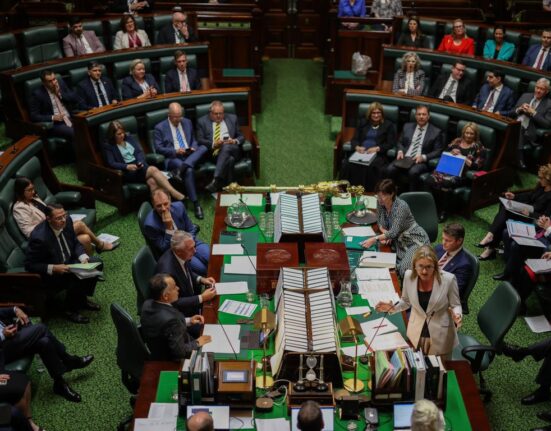2027 is set to be an exciting year for Nigeria as prominent political figure Amaechi announces his intention to run for presidency with a unique promise – he plans to serve only one term if elected. This declaration has sparked curiosity and discussions across the nation, raising questions about leadership continuity and political accountability.
Amaechi’s statement carries significant weight, considering the typical trend of politicians seeking reelection multiple times. By committing to a single term, he positions himself as a candidate focused on delivering tangible results within a specific timeframe. This decision challenges the status quo and sets a new standard for governance in Nigeria.
In response to inquiries about his decision, Amaechi explained,
“I believe that by limiting my tenure, I can concentrate fully on executing impactful policies without being swayed by concerns of reelection.”
This mindset reflects a strategic approach towards governance that prioritizes efficiency and effectiveness over prolonged stay in power.
Political analysts have been quick to weigh in on Amaechi’s announcement, offering varied perspectives on the potential implications of such a pledge. Some view it as a refreshing departure from traditional politics, emphasizing the importance of setting clear objectives and timelines in leadership roles. Others express skepticism about its practicality, citing challenges in implementing long-term policies that may require continuity beyond one term.
One expert remarked,
“Amaechi’s commitment to a single presidential term introduces an interesting dynamic into Nigerian politics. It signals a departure from entrenched norms and opens up possibilities for fresh approaches to governance.”
This shift towards short-term leadership goals could influence voter perceptions and expectations leading up to the elections.
As citizens engage in debates about Amaechi’s promise, social media platforms buzz with opinions ranging from excitement to apprehension. The prospect of a leader voluntarily limiting their time in office raises intriguing questions about legacy-building versus immediate impact. Will this strategy enhance trust in political leadership or inadvertently create uncertainties about long-term stability?
With campaigns gearing up and election fervor building momentum, Amaechi’s declaration adds an intriguing layer of complexity to an already dynamic political landscape in Nigeria. As voters evaluate candidates based on their visions, track records, and promises for the future, the concept of limited presidential terms emerges as a defining factor shaping public discourse.
In conclusion, Amaechi’s bold stance on serving only one presidential term has ignited conversations around governance practices and leadership dynamics in Nigeria. Whether this commitment will resonate positively with voters remains to be seen; however, it undoubtedly introduces novel considerations into the upcoming electoral narrative. As Nigerians prepare to make their voices heard at the polls, the impact of this decision may reverberate far beyond 2027.









Leave feedback about this